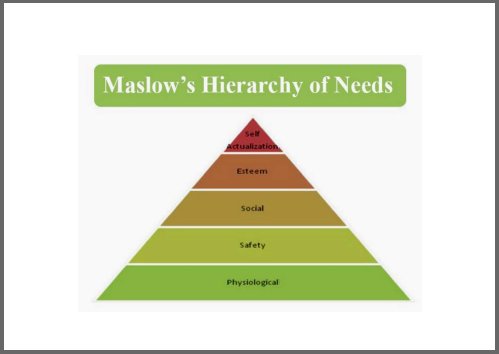

The focus of the philosophy is to gain total employee involvement and deliver an improved product to the customer. The key player in this process is the shop floor worker. It focuses on total participation of employees and expects small but critical improvements in the organisation "" Kaizens.

Incremental improvement is based on the business logic of customer orientation, that is, focused on customer satisfaction. Developed in Japan in the 1970s and 1980s, this process focused on delivering incremental improvement in products and services. This was followed by the era of incremental improvements, referring to small steps to improvement. These methods are still used by the most sophisticated businesses across the world, thus turning into the hygiene factor. This led to the era of mass manufacturing.

Process control, for instance, focused on synchronising and minimising all parts of an industrial process, making mass production possible. Each of these eras emerged in response to industry's need to survive, making the earlier management philosophy a basic requirement. While the US lost its leadership during this period, it bounced back in the 1990s with breakthrough management.Īccording to Professor Shoji Shiba, a world-renowned expert in breakthrough management, globally, industry has seen three eras of change and management "" process control, incremental improvement and breakthrough management. In the 1970s and 1980s, the Japanese developed a total employee involvement management style as they were looking for incremental improvement (Kaizens). They thus adopted a top-down management style of control. For instance, in the 1950s and 1960s, companies in the US were focused on mass production where the retainment of results was imperative. The book will serve as a valuable resource to researchers interested in the future management challenges facing global organizations.An organisation's management philosophy must be reflective of the state the company/ product/ division is in. The authors explore issues such as managing virtual teams, gender and management, e-commerce, biased financing, quantum computing, and disruption in the financial services industry. With globalization, virtual offices, and rapid technology growth, management challenges have become an expensive force to reckon with.In this book, the authors address the recent trends in management in global environments. The delegative and individual employee-based management styles of the past have become obsolete. Currently, organizations are trying to be more inclusive and aware of diversity, rapid technology growth, and globalization along with remotely operating businesses for profit motivation. Technological developments with far reaching implications on social, economic, political, and environmental ecosystems cannot be underemphasized. Rapidly growing technology and globalization have put tremendous pressure on management teams.


 0 kommentar(er)
0 kommentar(er)
